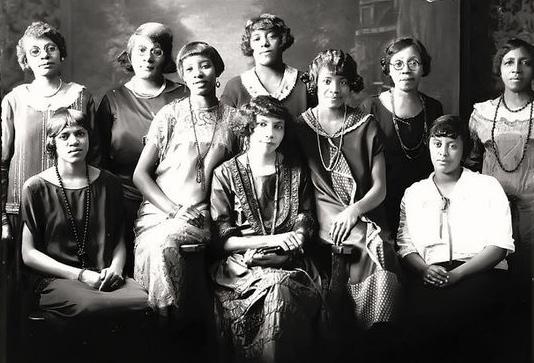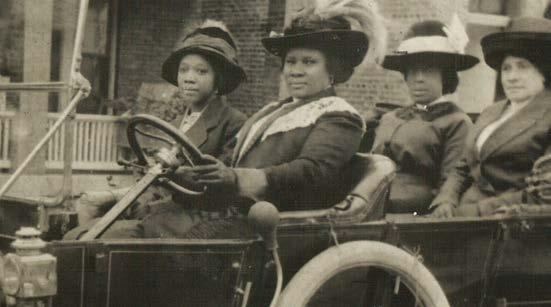
3 minute read
BLACK WEALTH Moving in Silence
Moving in Silence
The centuries-long existence of quiet Black wealth
BY LULA WHITE
Photo credit W. E. B. Du Bois with the Fisk University class of 1888 Photo credit vieilles_annonces on flickr


Madam C. J. Walker (1867-1919) “the first Black woman millionaire in Americ history.com
As the world turns on the turbulence of dictators and shaky global markets, Black America trains our eyes on our financial freedom and liberty. Let us remember the power plays we’ve always made, quietly and shrewdly against the backdrop of mass brutality. For centuries, across Europe and the New World, we’ve risen above the hand that was dealt to us.
Going as far back as 1532, when Alessandro de’Medici became the first Duke of Florence, Italy. Nicknamed “il Moro” because of his darker skin, Alessandro effectively became the equivalent of a Black Italian prince, according to Catherine Fletcher’s The Black Prince of Florence. He was backed by the Holy Roman Emperor and the Pope, who, it was rumored, may have been his father.
The royal courts of England were scattered with Black Tudors during the Elizabethan age, as is made clear in Onyeka Nubia’s historical work, England’s Other Countrymen.
Across the Atlantic on the shores of the New World in 1655, a former indentured servant from Angola, Africa, named Anthony Johnson filed a lawsuit to protect his property – another Black man being claimed by white slaveowners. Anthony became the first legal slave owner in
the thirteen colonies when the court ruled he could keep John Casor permanently.
Over a century later, in 1776, as America’s epic battle for independence unfolded, so too did another revolution – that of the wealthy, influential Black aristocracy. Our grade school history books omitted the hard-nosed, disciplined titans of industry who wielded the most potent of American weapons: capital.
But ever since the 1700s and 1800s, the likes of Paul Cuffee, James Forten, Benjamin Banneker and William Ellison ascended socially and politically as sea captains, farmers, blacksmiths, grocery store owners, whalers and machinists, all of whom were highly respected.
Our Kind of People by Lawrence Otis Graham and The Original Black Elite by Elizabeth Dowling Taylor depict eye-opening details on how the engine of Black high-society has hummed in America for centuries.
Prominent Black property owners and businesspeople sent their children to the finest Black boarding schools and started secret fraternities such as the Boulé and the Girl Friends.
Mingling and intermarrying exclusively within their class, shrewd in how they deploy power and influence, the Black bourgeoisie continues to defy the stubborn American trope of a downtrodden Black race.
Far more than the fantasy of Bridgerton, wealthy Black families have operated in secret for centuries in ways they do not discuss openly. It is taboo to reveal their homes, accounts, investments, property holdings, stocks or access to the “right” powerbrokers.
For most of us who didn’t know they existed, this discovery destroys the narrative of a singular Black American tragedy we learned in school. It is through this lens of prestige, discovery and cultural refinement that I decided to write stories of love and ascendance among the Black privileged class. I sought to depict Black wealth as far more complicated than the one-dimensional messages we’re fed in pop culture.
Themes of hierarchy, family wealth and ages-old ingenuity set the stage for Kevin Middleton and the preeminent Middleton family in my fictional series, Explore Men of the Hamptons. For readers of romance and women’s fiction, it’s been my honor and pleasure to illuminate our high society. May the excellence of our forebears serve as the blueprint for our own pursuits of wealth and empire. We’ve thrived in the crucible of hardship before, and we will no doubt do it again. Z
– William B. Gatewoord Jr., quoting Michael B. Katz, The
Journal of Southern History

Lula White is an Author of Romance, Historical Fiction and Women’s Fiction










